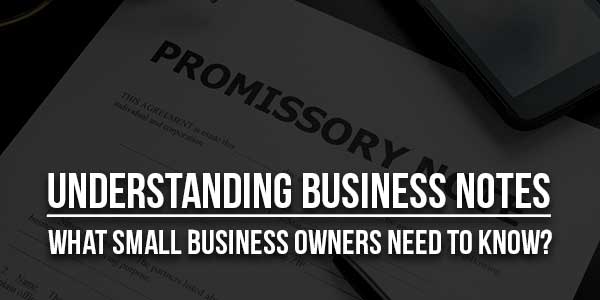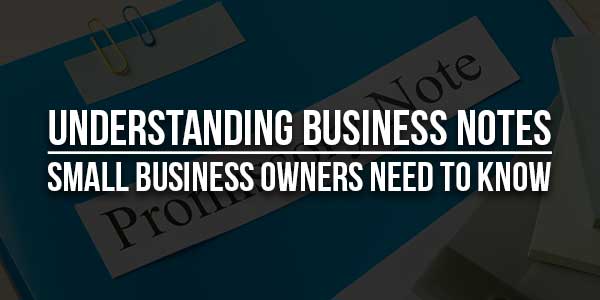
Running a small business comes with its fair share of challenges and opportunities. Whether you’re navigating cash flow issues or looking to expand, understanding various financial tools can be critical to your business’s success.
One tool that is often overlooked by small business owners is the business note. This financial instrument can play a significant role in financing and liquidity for small businesses. In this article, we’ll explore what business notes are, how they work, and how they might relate to your business operations.
Table of Contents
What Is A Business Note?
A business note, also known as a promissory note, is a legally binding document that outlines the terms of a loan between a business owner (or entity) and a buyer or lender. In its simplest form, a business note is an agreement where the business promises to repay a certain amount of money with interest over a specified period.
Business notes are commonly used in transactions where a buyer purchases an existing business from the owner and agrees to pay the remaining balance over time, rather than in a lump sum. This structure is similar to how the role of location in luxury real estate impacts the terms of a deal in property transactions. Just as location can drive value, business notes influence the financial structure of business sales.
Key Elements Of A Business Note:
- Principal Amount: The original amount of money that the buyer or borrower owes.
- Interest Rate: The agreed-upon rate of interest that the borrower will pay in addition to the principal amount.
- Repayment Schedule: Details the timeline for repayments, including the frequency and amount of each installment.
- Maturity Date: The date when the final payment is due, fully satisfying the terms of the agreement.
How Do Business Notes Work?
Business notes are typically part of a financing arrangement when a business is sold, but they can also be created for other types of business loans. When the note is created, it represents the promise of the borrower (the new business owner) to repay the seller (or lender) based on the agreed-upon terms.
For example, imagine a small business owner selling a restaurant for $300,000. The buyer may pay $100,000 upfront and finance the remaining $200,000 with a business note. The buyer agrees to pay monthly instalments for five years at a 6% interest rate. In this scenario, the seller benefits from continuing to receive income over time, while the buyer gets the opportunity to take over the business without needing to provide the full purchase price upfront.
This type of seller financing is similar to how architects take on dual roles as agents in real estate, offering flexibility to facilitate a deal.
Types Of Business Notes:
- Seller Financing Notes: When a business is sold, the seller may offer financing to the buyer in the form of a business note. This allows the buyer to make payments over time rather than all at once.
- Secured vs. Unsecured Notes: A business note may be secured by collateral (such as business assets) or be unsecured, which poses a higher risk for the lender but often comes with higher interest rates.

Why Business Notes Matter To Small Business Owners?
Business notes can serve several purposes in a small business setting, from providing financing options during a sale to creating cash flow opportunities. Here are a few ways they might impact your business:
1.) Seller Financing Option:
If you’re planning to sell your business, offering seller financing through a business note can attract more potential buyers. It provides a level of flexibility for buyers who may not have access to traditional loans or prefer to avoid the complicated process of securing one. This can be particularly advantageous for small businesses, where buyers are often other small business owners with limited capital.
Just like the importance of real estate in business development, offering financing can increase the value and attractiveness of your business to potential buyers.
2.) Maintaining Cash Flow:
Selling a business outright in a lump-sum payment can be challenging, especially in markets where financing is tight. Business notes allow for a structured repayment schedule, enabling the seller to maintain cash flow over a longer period. This can be particularly beneficial for retiring business owners or those looking to invest the payments into new ventures or personal projects.
This approach to cash flow mirrors strategies used in real estate, where practical steps for real estate investing ensure long-term financial sustainability.
3.) Investment Opportunities:
Business notes can also be bought and sold in the secondary market. If you hold a business note, you have the option of selling it to an investor or another buyer. This provides liquidity if you need immediate cash, allowing you to avoid waiting for the note to mature.
Investors might buy business notes because they offer a higher return than traditional savings accounts or bonds. Small business owners can leverage this by selling their notes to interested buyers, generating liquidity when needed.
Advantages And Disadvantages Of Business Notes:
Like any financial tool, business notes come with both benefits and potential downsides. It’s essential to weigh these factors carefully to determine if creating or selling a business note is the right choice for your situation.
Advantages:
- Flexible Financing: Business notes allow for flexibility in structuring the terms of repayment, making it easier for buyers to finance a business purchase.
- Continued Income: Sellers can continue receiving payments over time, often with interest, creating a steady cash flow.
- Investment Potential: Business notes can be sold to third-party investors, providing liquidity when needed.
Disadvantages:
- Risk of Default: There is always the risk that the buyer may default on the note, particularly if the business struggles financially after the sale.
- Delayed Payment: Unlike a lump-sum sale, business notes typically involve receiving payments over time, which may not be suitable for sellers who need immediate cash.
- Complicated Legal Processes: Setting up a business note involves legal documentation and careful negotiation of terms to protect both parties.
How Business Notes Relate To Your Business?
As a small business owner, business notes can offer a powerful tool for managing transitions and financial opportunities. Whether you’re looking to sell your business, raise capital, or invest in another venture, understanding how business notes work will help you make better financial decisions.
If you’re planning to sell your business, offering seller financing through a business note can make your business more attractive to buyers. It can also help you achieve a better sale price by increasing the pool of potential buyers. Alternatively, if you need cash, selling your business note to an investor can provide you with liquidity while allowing the new note holder to take over the collection of payments.
Conclusion:
Business notes offer small business owners a range of benefits, from providing flexible financing solutions to creating cash flow opportunities. Whether you’re looking to sell your business, raise capital, or invest in another business, business notes are a valuable financial tool that can help you navigate these processes with confidence. Understanding the structure, benefits, and risks involved with business notes will allow you to make informed decisions and optimize the financial health of your business.
While business notes come with inherent risks, such as default, they can be an excellent option for business owners seeking flexible financing solutions and continued income. By carefully structuring the terms of the note and choosing reliable partners, you can leverage business notes to support your small business’s financial goals.

 About the Author:
About the Author:












Be the first to write a comment.